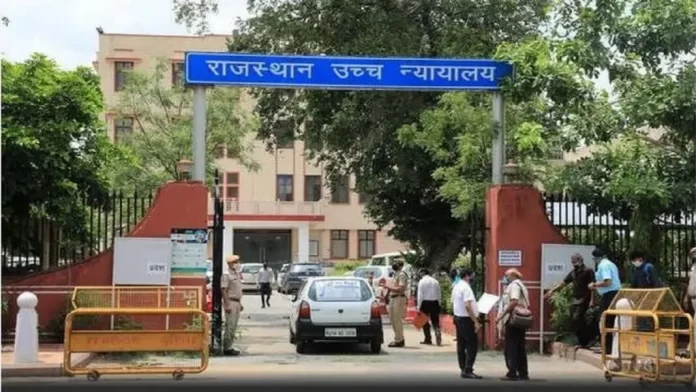The Rajasthan High Court has allowed the parole petition and directed a POCSO convict not to enter the village where the victim resides for the duration of parole.
The Division Bench of Justices Dinesh Mehta and Justice Rajendra Prakash Soni passed this order while hearing a petition filed by Moti Ram.
The parole writ petition has been preferred by the convict-petitioner Motiram, who has been convicted for the offence under Section 376(2)(f) IPC and Section 3/4 of the POCSO Act.
The convict-petitioner applied for his release on second parole under the Rajasthan Prisoners Release on Parole Rules, 1958. The District Parole Advisory Committee, Deedwana-Kuchaman (Parole Committee) rejected the application order dated 10.10.2023 and the District Magistrate Deedwana- Kuchaman informed the wife of convict-petitioner about the rejection of the parole application letter dated 13.01.2024. It is against the rejection, the convict-petitioner is in writ.
It was submitted by the counsel that the petitioner was granted 20 days parole vide order dated 12.02.2020.
While highlighting that it is petitioner’s statutory right to get second parole, counsel for the petitioner submitted that reasons given by the District Parole Advisory Committee, Deedwana-Kuchaman are not relevant particularly when concerned jail authorities have given favourable remarks about the petitioner’s conduct.
Anil Joshi, Government Advocate cum Additional Advocate General opposed grant of parole by contending that convict-petitioner is serving life sentence pursuant to his conviction under Section 376(2)(f) of IPC and Section 3/4 of the POCSO Act and since he has committed grave offence of sexual assault on minor girl (aged seven years), he be not released on parole.
It was argued that releasing the convict-petitioner on parole would have adverse bearing on social and psychological well-being of the victim, whose residence is just adjacent to the convict-petitioner’s house.
Kalu Ram Bhati, counsel for the petitioner submitted that convict-petitioner would spend his time of parole at his in-laws place in village Narayanpura, Tehsil Kuchaman City, which is sufficiently away from victim’s place of residence.
“The Court is mindful of the legislative intent of the POCSO Act which provides that the contact between the accused and the victim should be prevented in order to minimise the trauma experienced by the child. According to us, if the victim is faced with the presence of a convict-petitioner, it would have an adverse impact on her mental well-being and he/she would be forced to re-visit the trauma and be reminded of the incident which she would be trying hard to forget.
But then, a balance has to be struck between the safety and emotional aspect of the victim and statutory rights of the accused. We are of the opinion that such a balance would be achieved if the accused spends his time of parole at a place which is away from the victim’s residence. Such order would take care of the apprehension/anxiety expressed by the AAG”, the Court observed.
“The order dated 10.10.2023 passed by the District Parole Advisory Committee, Deedwana-Kuchaman is hereby quashed and set aside and the application for second parole is hereby allowed.
It is ordered that the convict petitioner Moti Ram shall be released on second parole of thirty days upon his furnishing personal bond in the sum of Rs 50,000/- with two sureties of Rs 25,000/- each to the satisfaction of Superintendent Central, Jail, Ajmer on the usual terms and conditions.
It is hereby also ordered that the convict-petitioner shall spend his period of parole in village Naryanpura, Tehsil Kuchaman City and he shall not visit the village where the victim resides.
The Superintendent, Central Jail, Ajmer shall be at liberty to impose other adequate and reasonable conditions to ensure return of the convict to the custody after availing the parole. The term of parole shall be computed from the date of his actual release.
It will be required of the petitioner to report in the concerned Police Station (where the convict-petitioner is spending his time of parole) and mark his presence on every third day.
The petitioner shall surrender himself before the concerned jail authority immediately on expiry of the period of parole”, the Court ordered.


